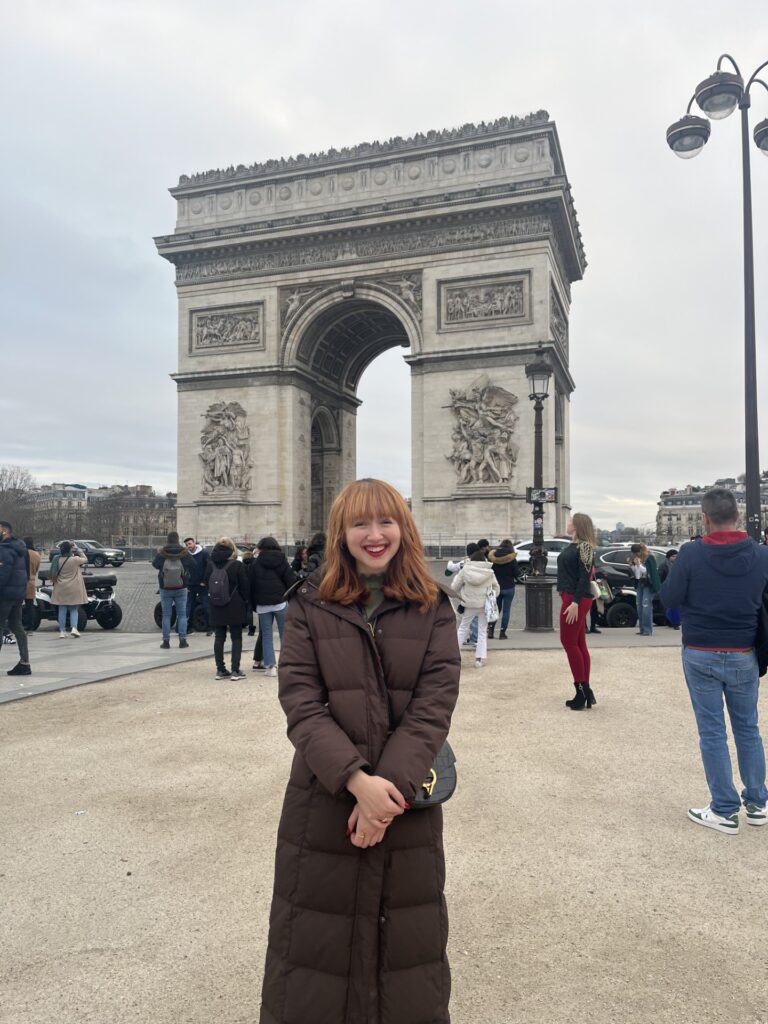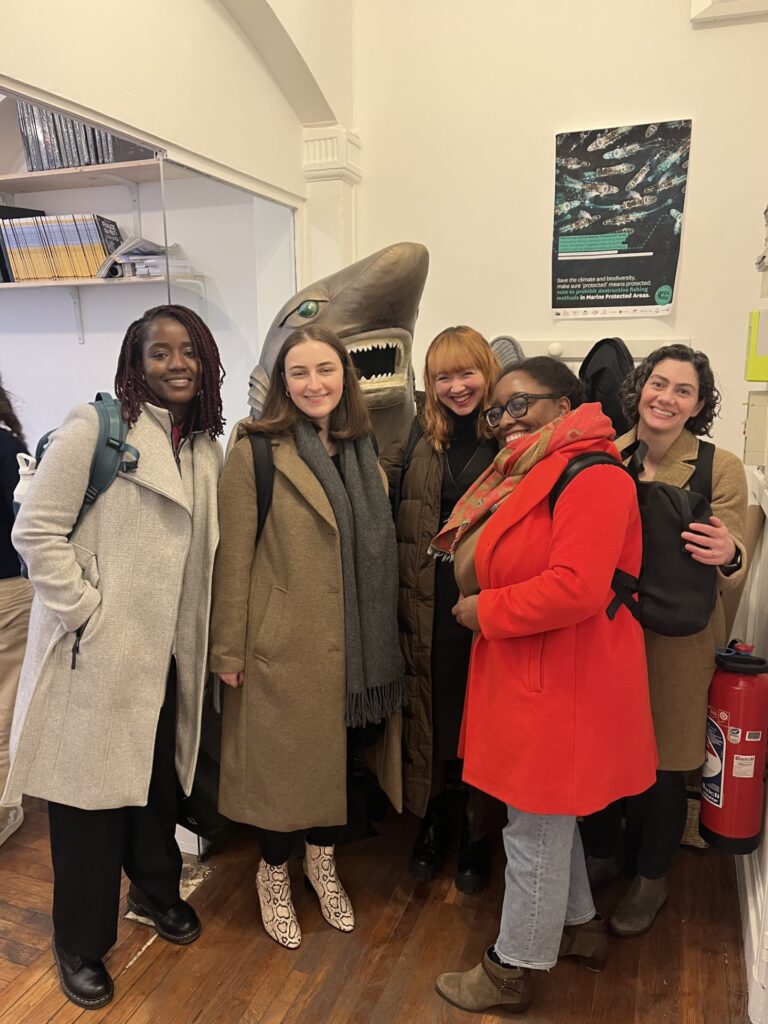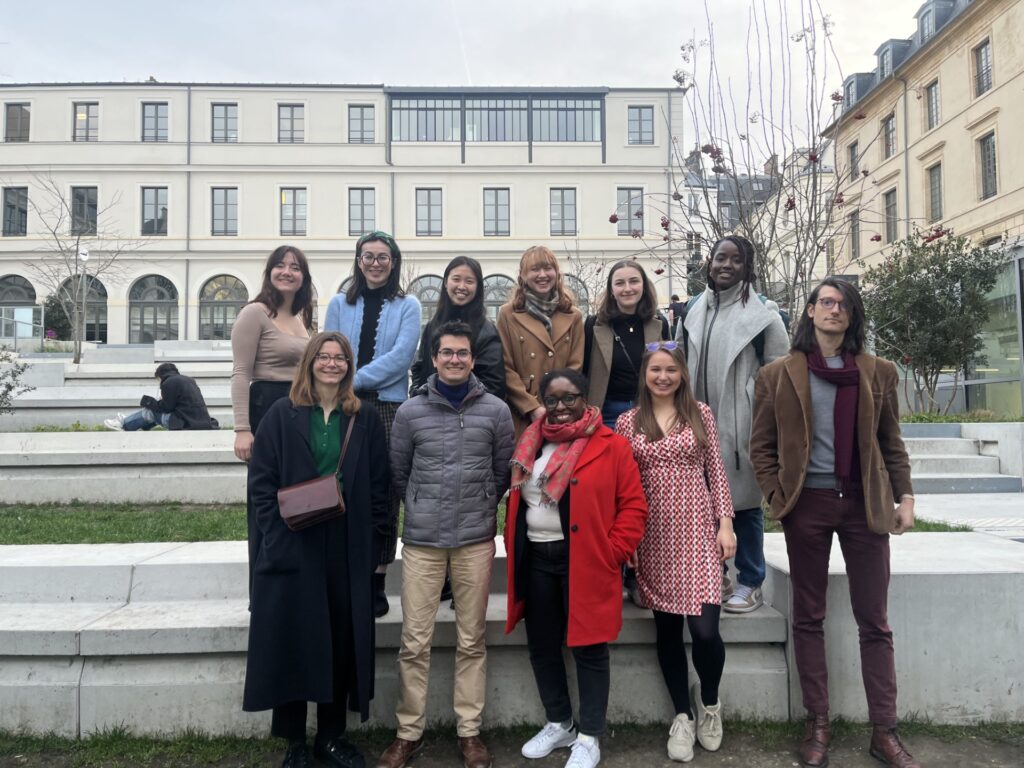
I have always been drawn to human rights work. Some of it stems from my own background, as the daughter of Brazilian immigrants, raised internationally by two caring and compassionate parents. Yet, I think my commitment to this work goes deeper than my own experiences. There is something so fundamental about ensuring that intrinsic rights, which belong to all peoples by virtue of their humanity alone, are respected, protected, and valued. A part of me has always felt compelled to uphold the rights of individuals and communities. It was this calling that drove me to apply to law school and to join the International Human Rights Clinic (IHRC).
My work with IHRC has been the most meaningful and rewarding part of my law school experience. I joined the Clinic in the Spring of 2023, and have participated as an advanced student ever since. My project centers on the 2017 French Duty of Vigilance Law which we are using to hold Carrefour, the seventh-largest supermarket chain in the world, accountable for human rights abuses in its seafood supply chain. These human rights abuses include slavery, human trafficking, forced labor, child labor, torture, wage withholding, debt bondage, inhumane working hours and working conditions, and limited access to food, water, and healthcare aboard ships. The Clinic has worked in collaboration with Bloom, a French environmental non-profit organization, to understand the risks of these abuses occurring and to determine how Carrefour, as a wealthy and powerful company with the resources to better manage its supply chain, should be held to a higher standard.
The French Law requires corporations of a certain size that are headquartered in France to publish a risk mapping that assesses the risks of human rights abuses and environmental harms in their supply chains and that outlines the company’s plan for mitigating those risks. I have critiqued several of Carrefour’s vigilance plans, analyzed the requirements of the French Law, summarized previous duty of vigilance cases, and interviewed a dozen experts in the field of corporate accountability. My legal research and writing, as well as my attention to detail and time management, have been honed by these tasks. All of this work culminated in a notice of intent to sue—a formal legal notice given to companies who fail to comply with the duty of vigilance law—being sent to Carrefour, initiating the litigation process.

Along this journey, the Clinic has granted me so many incredible opportunities. I visited Paris with my team members, where I met with our partners in person, lead a briefing on our findings, and developed advocacy strategies that helped shape the direction of the project. As a first-generation, low-income student, I was especially grateful for the opportunity to travel with the Clinic and to gain more confidence in my research, public speaking, and leadership abilities. The trip to Paris culminated in a report published by Bloom, entitled “Canned Brutality,” presenting research my team and I conducted regarding human rights abuses in tuna supply chains. While there, I was able to speak with incredible attorneys and learn from their experiences.
The Clinic has also given me access to a wonderful human rights community that has provided me with mentorship, professional connections, and a sense of belonging at HLS. I have met great friends whose work in the Clinic has served as an incredible example of what a commitment to justice can achieve. The clinicians, particularly my project leaders Susan Farbstein and Aminta Ossom, have been the most supportive professors and mentors I could ever ask for. They have provided me with excellent feedback throughout my clinical experience, have created opportunities for me to showcase my leadership skills and to develop my own thoughts about the direction of the project, and have served as my recommenders and references for postgraduate fellowships. The Clinic has also paired well with my work as a Project Leader in Advocates for Human Rights, where I was able to lead smaller scale projects focused on issues of corporate accountability and armed conflict.
As a first-generation, low-income student, I was especially grateful for the opportunity to travel with the Clinic and to gain more confidence in my research, public speaking, and leadership abilities. The trip to Paris culminated in a report published by Bloom, entitled “Canned Brutality,” presenting research my team and I conducted regarding human rights abuses in tuna supply chains. While there, I was able to speak with incredible attorneys and learn from their experiences.
Each semester, I have seen how the project has evolved, and have faced the challenges and successes with a sense of ownership, dedication, and pride. As a student, there are few opportunities to shape a project and help it grow and change over time. Students are often invested in a project for a summer or a semester, and are unable to see the work they have cared so deeply about come into fruition. Continuing on in the Clinic has given me the chance to realize the impact of my contributions, to see how one facet of my work feeds into other aspects of the project, and to appreciate the timeline of human rights cases. This continuity has been invaluable for me, as I now understand how a case is built and develops.
My experience in IHRC has been impactful enough to inspire my future career choices. I understand the power imbalances driving human rights abuses perpetrated by corporations, and want to alleviate these harms for impacted communities. This work has encouraged me to pursue a fellowship with Corporate Accountability Lab after graduation. There, I will continue to hold companies accountable for human rights abuses and environmental harms committed throughout international supply chains. I know my time in the Clinic has prepared me incredibly well for this next step, and I look forward to continuing to build a human rights career.
